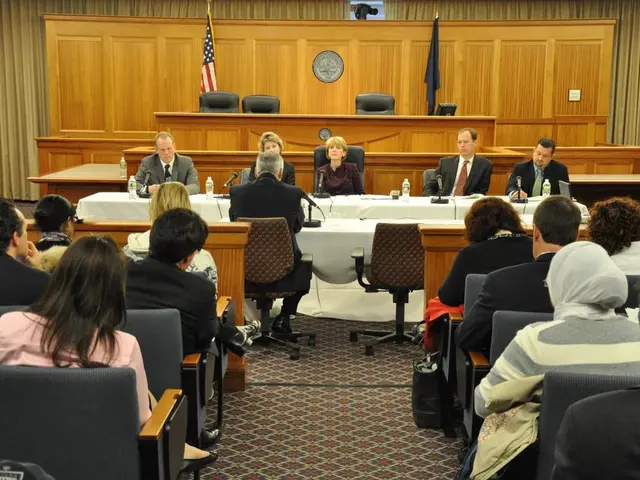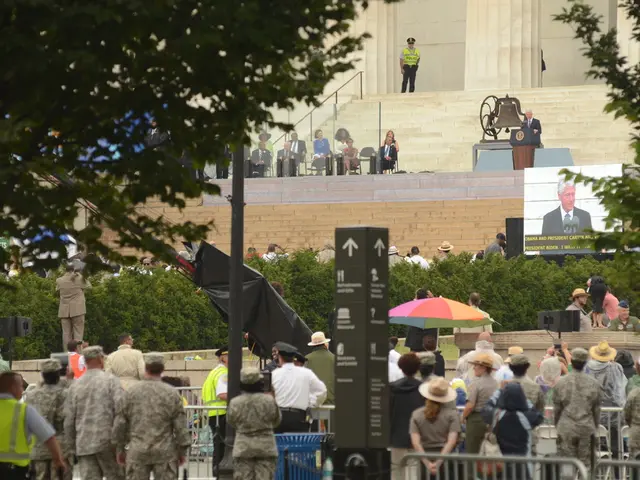South Korea's Anti-China Sentiment Boils Over as Protests Target Tourists
Tensions have escalated in South Korea following former President Yoon Suk Yeol's allegations of Chinese influence in elections. This has sparked a wave of anti-China sentiment, with protests and online petitions expressing concerns about Chinese tourists and potential health risks.
The visa-waiver program for Chinese tourists, set to resume fully in 2025, has been temporarily reinstated until June 30, allowing group entries without visas. However, this move has sparked outrage, with over 300 protesters gathering near the National Assembly in Seoul to voice their opposition.
Protests have also targeted Chinese nationals in shopping districts like Myeong-dong and Daerim Station, demanding their departure. Authorities have imposed restricted-entry orders on protesters 13 times in the past two months, but rallies persist. An online post threatening Chinese tourists is currently under investigation for public intimidation.
Experts warn that the rise in anti-China sentiment risks fostering a broader hate movement against Chinese people. The initial criticism from Indian tech outsourcing companies and Big Tech, regarding visa allocations and cheaper labor, has fueled these sentiments. Over the past year, at least 110 anti-China rallies have taken place nationwide.
As Chinese group tours officially commence under the visa waiver scheme, authorities face the challenge of managing public sentiment while ensuring the safety of all visitors. The temporary reinstatement of the visa-waiver program highlights the delicate balance between tourism and public safety concerns.
Read also:
- United States tariffs pose a threat to India, necessitating the recruitment of adept negotiators or strategists, similar to those who had influenced Trump's decisions.
- Weekly happenings in the German Federal Parliament (Bundestag)
- Southwest region's most popular posts, accompanied by an inquiry:
- Discussion between Putin and Trump in Alaska could potentially overshadow Ukraine's concerns








